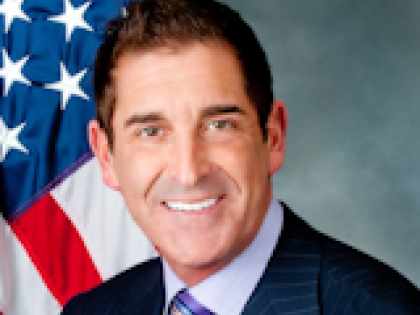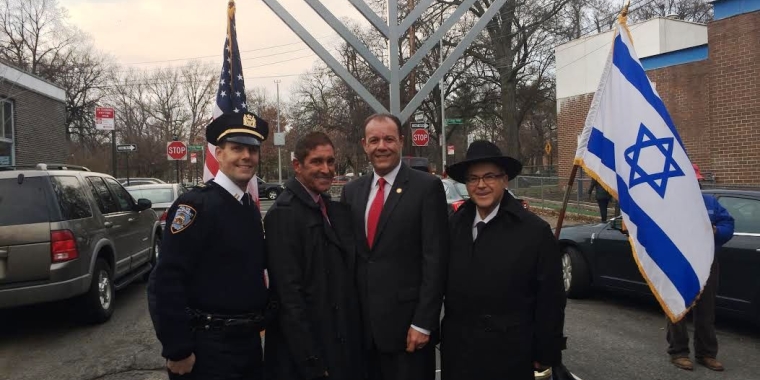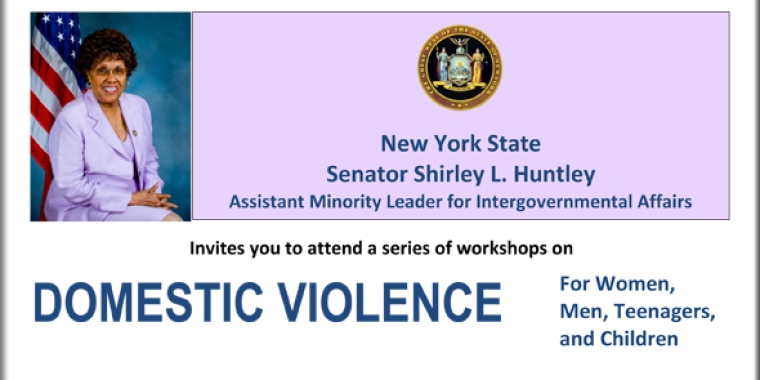
Protecting Families in Public Housing From Sex Offenders
Jeffrey D. Klein
August 10, 2010
Senator Klein Unveils New Data Showing Dozens of Registered Sex Offenders Still Illegally Living in NYC Public Housing
BRONX, NY – State Senator and Deputy Majority Leader Jeffrey D. Klein (D-Bronx/Westchester) joined Assemblymembers Michael Benjamin (D-Bronx) and Michael Benedetto (D-Bronx), Throggs Neck Houses Residents Council President Dwayne Jenkins and community members to unveil new data showing an increase in the number of sex offenders illegally living in public housing units in New York City from numbers reported earlier this year.
Earlier this month, Governor Paterson signed into law Klein and Benjamin's legislation to require the NYS Department of Criminal Justice Services to provide municipal housing authorities with a list each month of all registered sex offenders whose address is within the authority's city or municipality. This legislation is scheduled to take effect on September 28th of this year.
“No parent or caregiver should ever have to worry that their child is at risk – especially right in their own backyard. By making it easier for local authorities to get quick, accurate information about registered offenders in their area and on a tenant or potential tenant's offender status, this law will help prevent additional offenders from moving into public housing and remove those who are currently breaking the law,” said State Senate Deputy Majority Leader Jeffrey D. Klein (D-Bronx/Westchester).
In New York State, lifetime sex offenders are designated with a risk level of two or three. Klein's most recent investigation discovered there are currently 75 level two and three registered sex offenders illegally living in public housing units in New York City, compared with an investigation Klein unveiled last spring showing 74 level two and three registered sex offenders. The breakdown by borough is as follows: 19 in the Bronx, 30 in Brooklyn, 17 in Manhattan, 5 in Queens and 4 on Staten Island.
The new law (Chapter 278 of 2010 – S.2490/A.3024) requires the NYS Division of Criminal Justice Services (DCJS) to provide municipal housing authorities with a list each month of all registered level two and level three sex offenders whose address is within the authority's city or municipality.
“Despite federal regulations prohibiting sex offenders from living in public housing, recent reports have indicated that a substantial number of sex offenders defy the law and reside in these developments, including NYCHA. This legislation will help NYCHA and municipal housing authorities statewide receive timely information so we protect children and residents from the illegal presence of sex offenders. And I am glad to have collaborated with my friend, Senator Klein in passing this important legislation,” said Assemblymember Michael Benjamin (D-Bronx).
In 1998, Congress banned subsidized housing for the most serious sex offenders after a convicted sex offender was charged with assaulting and molesting a 9-year-old neighbor girl who lived in the same public housing building. In accordance with federal law, the U.S. Department of Housing and Urban Development (HUD) established regulations requiring all public housing authorities to conduct a check to determine whether a potential tenant, or member of a tenant’s household, is a lifetime registered sex offender.
“Everyone deserves to know who their neighbor is, and who they are living next to. This is a step in the right direction to protect the citizens of our State,” said Assemblymember Michael Benedetto (D-Bronx).
In 2006, HUD convened a special multi-agency task force comprised of federal and New York law enforcement agencies to combat the problem by going door to door in NYCHA developments to verify sex offenders’ addresses. In February 2007, the task force announced that it had found 78 sex offenders illegally living in public housing, all of whom were evicted or ordered by parole officers to leave the developments. The task force also listed as fugitives 118 convicted sex offenders not living at the public housing addresses they had given to authorities as their current residence.
Share this Article or Press Release
Newsroom
Go to NewsroomSenator Klein Donates More Than 2,000 Textbooks to Students of P.s. 107
December 23, 2014

Senator Klein & Assemblyman Gjonaj Host 20th Annual Menorah Lighting
December 17, 2014


